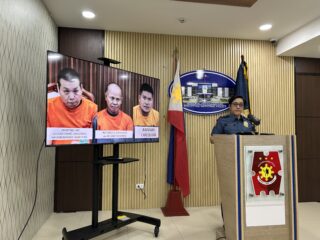GENERAL SANTOS CITY — In last week’s column, I listed the fictional courses that President Duterte should be graded on since this is his last year as president. I have already given him a zero score for gender sensitivity and social inclusion, noting how disrespectful he is to women in general, but more especially to women who he believes are challenging his populist pretensions to obfuscate his authoritarian tendencies. But it is his trademark misogyny and sexist remarks and his regular spewing of invectives that allude to women as whores that truly make him deserving of being given a below-zero rating.
The next course he is to be rated on is organization and management (OM). For this course, we focus on how he and his top officials have dealt with the various crises that we have faced as a country. We start with his knee-jerk reactions and decisions on issues brought to his attention, especially in relation to his centerpiece programs on eradicating the drug menace and on ending corruption in government.
Among Mr. Duterte’s top promises as an incoming president was to end the drug menace that has been quite difficult to address for the presidents before him. He was even bold enough to declare that he will end this public scourge within less than a year, and initially within three months into his administration. Now in his fifth and last year of his presidency, the illegal drug industry continues to flourish, under the purview of the national security forces (both police and military officials).
For this aspect in the OM course, Mr. Duterte again is to be given a zilch/nada rating. His drug war has not ended the drug menace; instead, his “license to kill” order to the police ended the lives of more than 20,000 victims of extrajudicial killings associated with his war on drugs.
Mr. Duterte also made people believe in his bombastic way of addressing the problem of endemic corruption in the government, saying that he disdains even a “whiff of corruption.” Again, several of his trusted lieutenants in his Cabinet are widely perceived to be receiving kickbacks on major government transactions. Even in COVID-19 vaccine procurement, several allegations have been hurled against officials of the Inter-Agency Task Force for the Management of Emerging Infectious Diseases (IATF). The transactions involving the disbursement of huge amounts of money are widely perceived to be dubious and anomalous, according to a slew of reports questioning the “honesty” and integrity of Health Secretary Francisco Duque III, for example. IATF officials are also being questioned because they are not health practitioners to start with but are former generals of the Armed Forces of the Philippines who have since retired from military service. But since the release of such reports, Mr. Duterte has endlessly claimed “his men” are straightforward, arguing that as former military officials, they are disciplined, and therefore, “corruption-free.”
As it turns out, his promise to get rid of corruption ended as just a promise, and his hatred for even a “whiff” of it can be interpreted that he only hates corruption when it is done in small-scale. Maybe he likes the “pakyawan” (wholesale) scale of corruption instead of the “tingi” (retail) type? So for this aspect in OM, he has also scored another zero.
He has also failed dismally in ethics, in his lack of respect for human rights, especially the right to life of indigenous peoples. Many of them have not only been Red-tagged; they have also been persecuted and killed for upholding their basic human rights and for putting up schools of their own living traditions. For all these and his failure of delivering on his campaign and initial presidential promises, he should be given a dismal, lower than the failing grade.
But unlike students in higher education who are given another chance to enroll in courses they failed in, Mr. Duterte should be barred from being elected to any public office, especially the vice presidency. This should not only apply to next year’s elections but to all elections throughout his lifetime.


